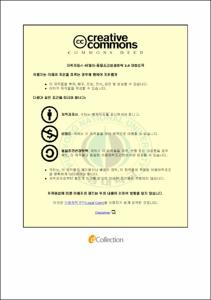초등 3, 4학년 영어 교과서 게임분석과 학생들의 반응연구
- Abstract
- The purpose of this study is to analyze and compare the game activities of the 3rd and 4th grade elementary English text books by using some analysis criteria and questionnaires. The analysis was made based on 15 categories. The games in the 3rd and 4th grade text books were analyzed in terms of such as the purpose, motivation, organization, language skills, competitive counterparts, game type, victory, physical response, communicative functions, speaking practice type, choosing the game leader, operating activities, materials and the inclination of the games. Additionally a questionnaire survey was used to help evaluate the games in accordance with the analyzing criteria of this research and done with students on their opinion and preferences about English class, interest and participation in the games. The major findings of this study(through the analysis of games in the textbooks) and results of the survey are as follow.
First, in terms of purpose of the game, the games included in the textbooks were more focused on fluency for enhancing communicative ability than the practice of language forms, and the students also tended to have a relatively high interest in communicative practice. In considering the language level of elementary students, the practice of language form is very important but the number of the game for communication should be increased for the growth of communicative ability.
Second, in terms of the motivation, the competitive games and cooperative games were almost equal. but in the questionnaire, the students preferred cooperative games to competitive games. Competition is very important element of learning. and competitive games can promote the atmosphere of disharmony in class. but the effect of cooperation should not be overlooked, so teachers need to introduce more cooperative games. with regard to organization the most prevalent activity type was group work, and in the questionnaire, students also liked the group work and whole-class work than pair work and individual work like small group. To increase students' participation in game activities and give students many chances of the verbal interaction, the numbers of the group and pair work should be enlarged.
Third, when it comes to the language skills and the winning elements of the game, most of the games were the games for speaking and most of the student likes games to develop speaking and listening jointly followed by games to develop speaking skills only, listening, reading and writing. In terms of competitive counterparts, the competitive objects of the games keep opponent players(47%) and task performance(51%) similar. Competition with time turned out to be just 2%. On the other hand, in questionnaires, student preferred the games aimed at their opponents or time limit. So it's more effective for teachers to prepare the games aimed at their opponents anr time than the games for task performance.
Fourth, in terms of game type and winning elements of the game, picture games and question and answer game ranked highest, and the information exchange games and the card & board games ranked next highest. but students preferred magic game most. As to the winning elements of the game, the number of the games based on ability was equal to the number of the games based on luck. However in the questionnaire, the students preferred ability-based games rather than the games whose results were determined by luck.
Fifth, when it comes to the physical response, there were much more games focused on two integrated responses(physical response and verbal response) and in the questionnaire, students like verbal response better than physical response.
Sixth, with regard to who plays the role of the game leader, the analysis showed that game leaders tended to be the students themselves. It is a good point when we think about educational effect. Students can enjoy games a lot.
Finally, the analysis of the questionnaire is as follows:
The students enjoyed playing the games positively and many students said that they could learn English joyfully while playing games.
To conclude, game activities in elementary school English are effective by enabling learners to study and learn on their own. Hence, the attempt to utilize various games will be an important project for English teachers to provide children with more effective games to play in English.
- Issued Date
- 2013
- Awarded Date
- 2013. 8
- Type
- Dissertation
- Publisher
- 부경대학교
- Affiliation
- 교육대학원
- Department
- 교육대학원 초등영어교육전공
- Advisor
- 박매란
- Table Of Contents
- 목차 ⅰ
표 목차 ⅲ
Abstract ⅴ
Ⅰ. 서론
1. 연구의 필요성 및 목차1
2. 연구 과제 3
3. 연구의 제한점 4
Ⅱ. 이론적 배경
1. 2008년 개정 초등영어 교육과정과 게임 5
2. 초등영어 교육과 초등학생의 특성 7
3. 초등영어 교육과 게임의 활용 10
4. 선행 연구 25
Ⅲ. 연구 방법
1. 분석 대상과 분석 내용 29
2. 분석 도구 30
Ⅳ. 자료 분석 및 토의
1. 영어 교과서 게임 분석 결과 33
2. 학생 설문지 분석 결과 48
Ⅴ. 결론 및 제언
1. 결론 66
2. 제언 69
참고 문헌 70
부록 75
- Degree
- Master
- Files in This Item:
-
-
Download
 초등 3, 4학년 영어 교과서 게임분석과 학생들의 반응연구.pdf
기타 데이터 / 870.29 kB / Adobe PDF
초등 3, 4학년 영어 교과서 게임분석과 학생들의 반응연구.pdf
기타 데이터 / 870.29 kB / Adobe PDF
-
Items in Repository are protected by copyright, with all rights reserved, unless otherwise indicated.